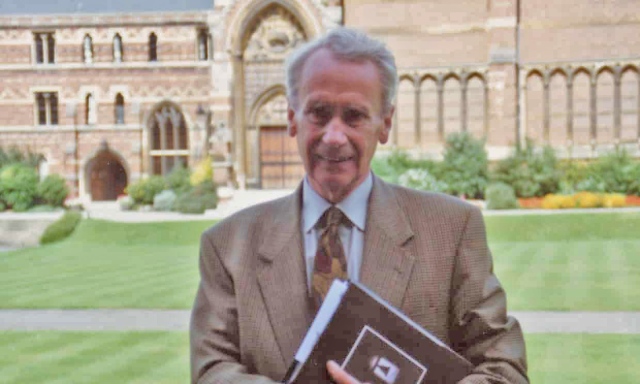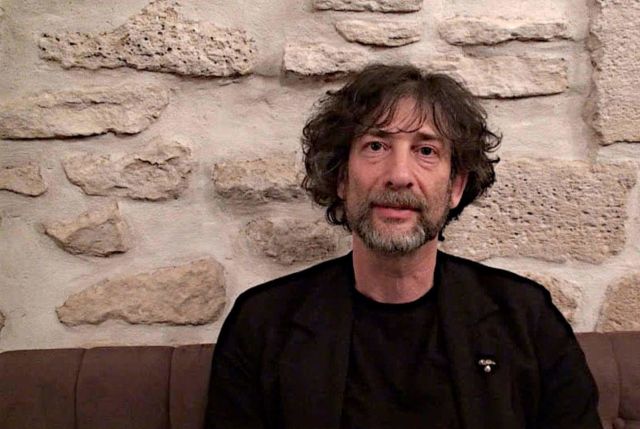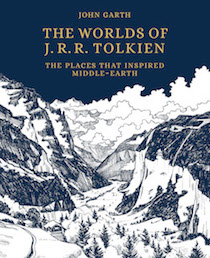
Today Christopher Tolkien, who died in January after a short illness, would have been 96. He is sorely missed, though it is a delight and consolation to know that at least one further volume of J.R.R. Tolkien’s writings, sanctioned by Christopher, will be published next summer: The Nature of Middle-earth, edited by Carl F. Hostetter.
When I wrote Christopher Tolkien’s obituary for the Guardian newspaper, I spoke to several people who had known him or worked closely with him – long, passionate conversations which helped to guide me in my writing even though there was only space to quote very selectively from them.
I also asked Neil Gaiman – a man who needs no introduction – for his comments. This is because in the foreword to The War of the Ring, volume 8 of The History of Middle-earth, Christopher Tolkien thanks him for identifying a reference made by J.R.R.T. From this, it was clear that Neil has been one of the most dedicated readers of Christopher’s extraordinary and meticulous study of the writings of his father, J.R.R. Tolkien. Again, I could use very little of this in the Guardian, but Neil has kindly given me permission to publish the comment in full.

‘It was in the days before email and the internet. I was a young writer — 27 when The Return of the Shadow came out, and I devoured it. And noticed Christopher Tolkien stating that he had no idea why his father mentioned “The Rhyme for Porringer” when talking about the scansion of ‘Eärendil was a Mariner’.
‘I happened to know. (It was relatively obscure, in those pre-google days, but I’d learned it from a James Branch Cabell short story.) So I wrote to Tolkien c/o the publisher, telling him the poem and its history, and thought no more of it. He wrote a kind letter back, very happy to have the mystery cleared up. And two years later I opened my copy of The War of the Ring and was thrilled and surprised to find myself thanked in there.
‘Articulating why I find the History of Middle Earth interesting is difficult. I wonder what I would have thought if I’d read it as a boy, when reading and rereading The Lord of the Rings was the best thing in the world. I read it as an author, and I loved it as an author, because it feels like Christopher lets us in to his father’s mind: lets us walk the road as JRRT walked it, all the false starts and dead ends, all the changes of mind and the unstoppable relentless work that went on, that would give us LOTR. It’s like being allowed to see a small part of the underneath of the iceberg, or the roots of the tree.
‘Making that process palatable is difficult, making it interesting borders on the impossible, but Christopher managed it, and in doing it illuminates why Lord of the Rings felt so powerful. It’s the layers beneath, that it was built upon, that make it strong.’
My thanks go to Neil Gaiman for permission to reproduce these words.




Gaiman has a remarkable ability to find a turn of phrase that immediately resonates.
This may well be the best tribute to Christopher Tolkien that I have seen. Thank you John Garth, and particularly, thank you Neil Gaiman. ‘He lets us walk the road as JRRT walked it’: Neil Gaiman’s tribute to Christopher Tolkien
‘It’s the layers beneath, that it was built upon, that make it strong.’
As Merry says to Pippin, ‘It is best to love first what you are fitted to love, I suppose: you mist start somewhere and have some roots, and the soil of the Shire is deep. Still there are things deeper and higher…’
The bedrock again.
‘mist’?! Must!
Pingback: Waiter, there’s a [brown person] in my [fictional world] – GenX Jamerican